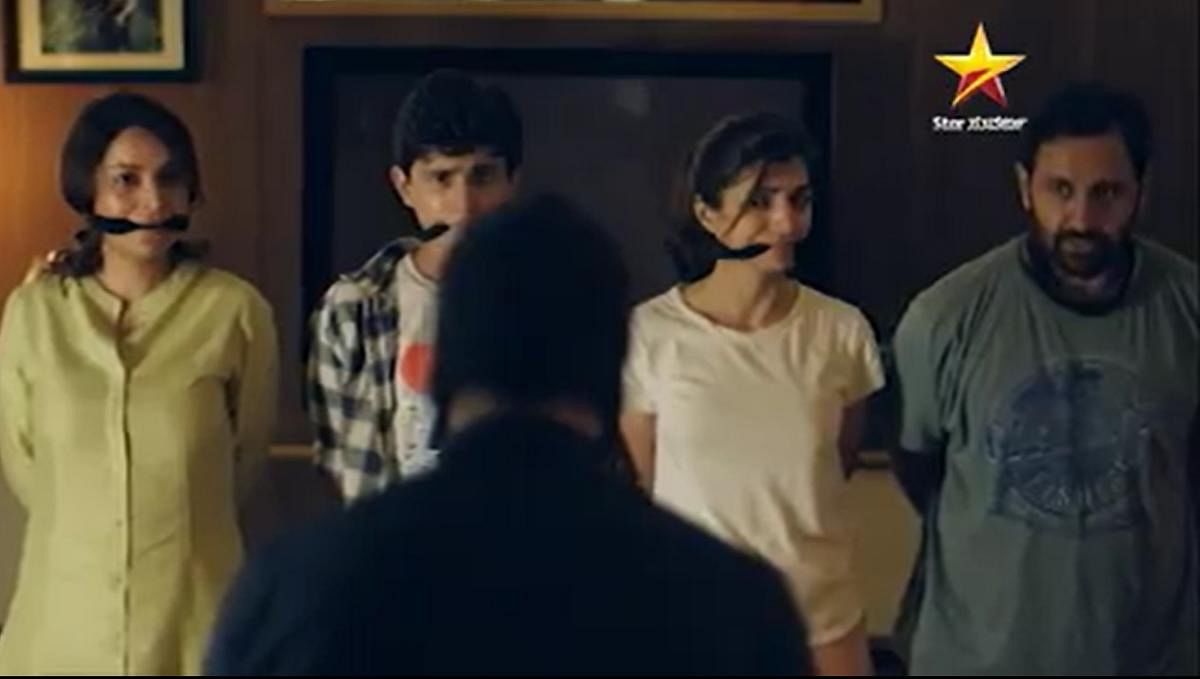
Last week, the Kannada TV channel Star Suvarna announced three shows — Hostages, Mahabharata (2014) and Nazar (Drushti), and released promos for them on social media. On Saturday, the promos were gone.
Audio clips appeared on social media, suggesting the Karnataka Television Association (KTVA) had ‘requested’ a dubbing association not to dub for any web series or TV show in Kannada on the grounds that it would impact those working on original productions.
With shooting stalled because of the lockdown, TV channels are scrambling for material. They have hit upon the idea of telecasting serials dubbed from other languages.
The Kannada Grahakara Koota, which had actively campaigned for dubbing of films into Kannada, put out a social media campaign and a petition with regard to the audio clips. Ganesh Chetan, president of the language-centric consumer group, says, “Because of the lockdown, we floated the idea on social media of dubbed content on television. Soon Suvarna picked up the idea and decided to telecast some shows, and put out promos. The shows were slated for airing on Monday, but the promos soon disappeared. The audio clips surfaced after that.”
Ganesh says a ban on dubbed TV content is neither right nor legal. “It cuts supply and then claims there is no demand for dubbed content. It is the right of every consumer to be able to access all sorts of entertainment,” he says.
The group posted a petition on Sunday with the social media hashtags dubbing_idu_kannadapara and dubbing_nammahakku.
Arun Javagal, secretary of the Kannada Grahaka Koota, says the argument that employment opportunities will come down if content is dubbed is wrong.
“The market has increased and viewership has increased with it. A variety of things are being watched. The release of dubbed films has already proved that the worry is baseless. Did any original filmmakers stop making films after dubbed films were released?” he says.
The group plans to meet television channel business heads and discuss the problem.
Dubbing association unclear
Yashwanth Bijoor, actor, director and writer, dubbing artist and secretary of Kantadhana Kalavidara Sangha, says that dubbing association president B T Manjunath received a call from the president of KTVA.
He says, “The call was meant to ask whether our association artistes were involved in the dubbing of the shows. The official requested that no dubbing artistes from our side should lend their voices to the serials as it could lead to job losses for those making original serials.”
Yashwanth added association members were not involved in dubbing the three shows in question. “Since the lockdown is on, it is hard to find out who the artists are. We checked in our WhatsApp groups and everyone is curious,” he said.
Metrolife called Star Suvarna and a programme head said that he was not aware of the row. He said “I don’t know anything” and disconnected the call.
An official of the Karnataka Television Association claims no one from the association made calls to stall the three shows.
Penalised
In 2015, the Competition Commission of India had slapped a penalty of Rs 20 lakh on three associations that had obstructed the release of Kannada-dubbed films.
“I hope ‘Malgudi Days’ will be telecast by Zee Kannada as it will open the doors for dubbed TV shows. ‘Malgudi Days’ has a big connect with Kannada audiences because of director Shankar Nag, the Kannada actors and the context.”
— Arun Javagal, Secretary of Kannada Grahakara Koota
Informal ban and after
An informal ban had been in force for six decades in Karnataka. Its objective was to encourage original films. Kannada activists filed a case with the Competition Commission of India, alleging vested interests were blocking dubbing into the language. In 2015, the commission ruled in favour of the petitioners, and paved the way for films being dubbed into Kannada. Some Kannada-dubbed films have been released, but they haven’t been box office hits.
‘Dubbing will help channels survive’
Ratheesha Rathnakara, director of Harivu Creations, was involved in the dubbing of Tamil film ‘Commando’ into Kannada. More recently, he has worked on rendering Shankar Nag’s ‘Malgudi Days’ into Kannada.
“Dubbing will help channels survive. It is a win-win situation for both the channel and the audiences. Finding content is a big challenge, especially during a lockdown,” he says.
Kannada entertainment channel Udaya has already telecast Kannada-dubbed films like ‘Sye Raa Narasimha Reddy’ (Telugu) and ‘Bigil’ (Tamil).
“Channels need both original content and access to dubbed content. Suvarna channel’s step was commendable as it selected good shows. When it stopped its promos suddenly, I tried to reach out to stakeholders,” he says.
He believes dubbing will never fully replace original content.
“Raghavendra Hunsur of Zee Kannada has shown interest in the dubbed version of ‘Malgudi Days’. We are talking,” he says.